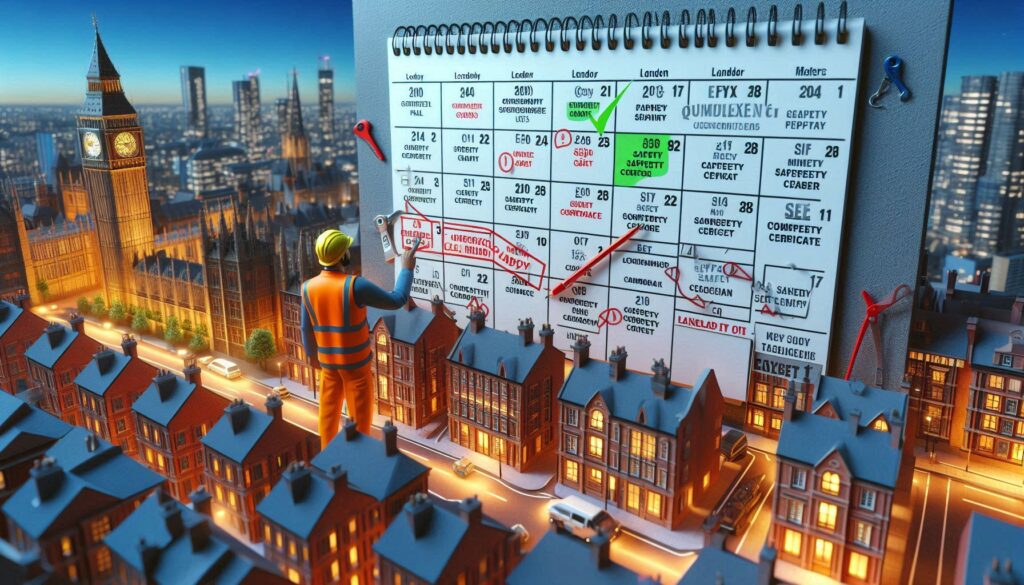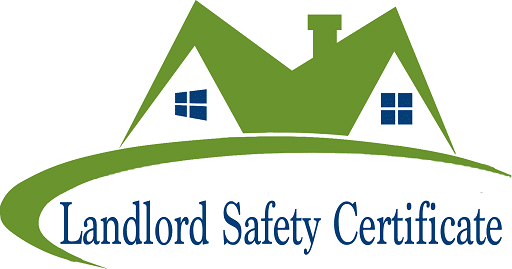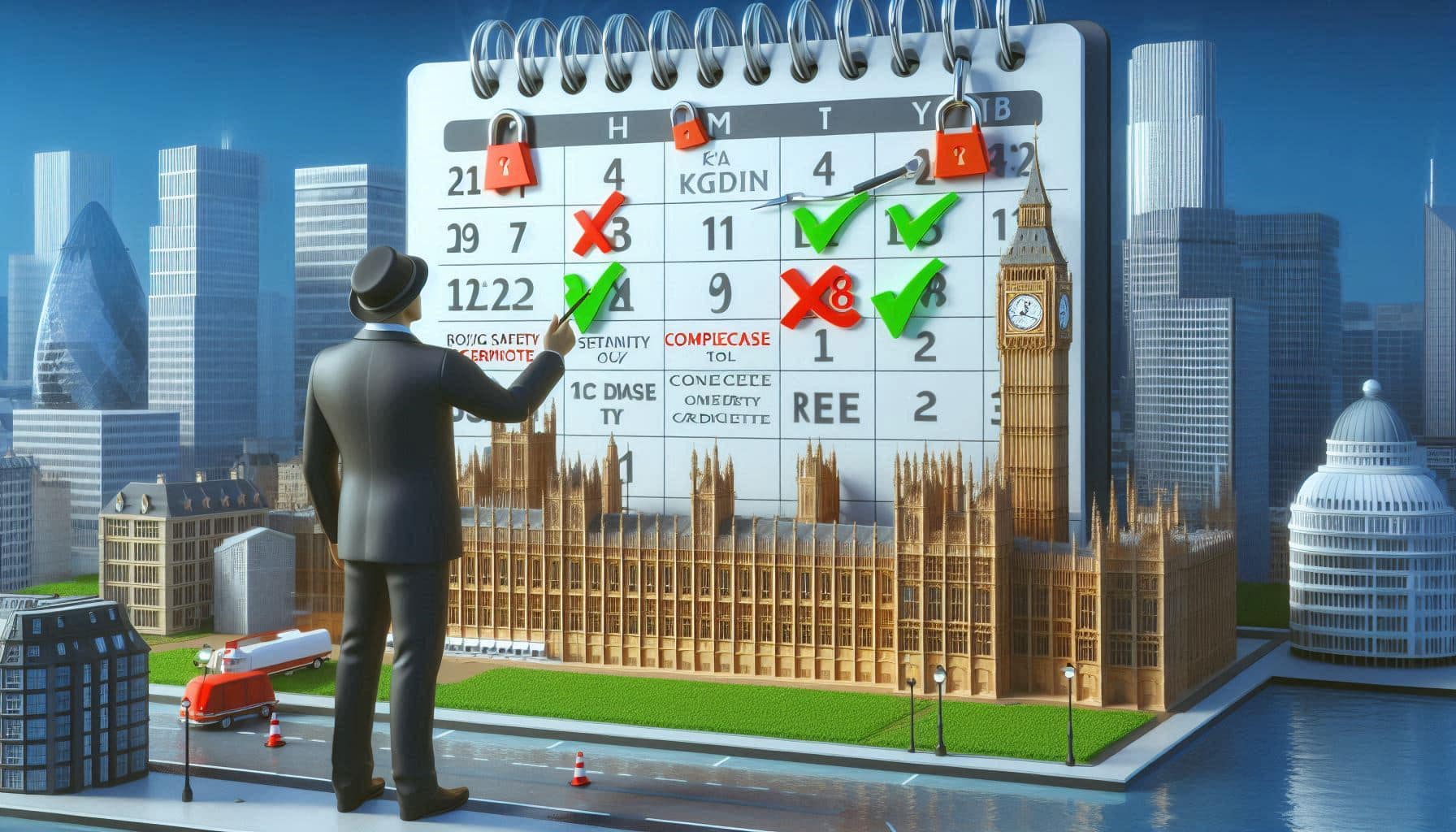
For property owners in London, compliance with safety standards is a legal responsibility. Meeting landlord certificate deadlines ensures properties remain safe and legally rentable, while a safety compliance calendar helps landlords stay organised. With clear planning, landlords avoid penalties, protect tenants, and build trust. Ignoring these obligations risks financial loss, legal action, and tenant dissatisfaction, making a structured calendar essential.
Landlords in London must manage several safety requirements, including gas, electrical, and energy checks. Meeting landlord certificate deadlines ensures properties stay compliant, while a safety compliance calendar helps prevent oversights. With this system, landlords can plan ahead, avoid penalties, and reduce stress, making property management more efficient and reliable.
One of the most important landlord certificate deadlines in London is the annual gas safety check. Every rental property must be inspected by a Gas Safe registered engineer to ensure appliances and systems are safe. Adding this date to a safety compliance calendar helps landlords avoid missing renewals, which could lead to penalties or tenant risks. Keeping copies of completed certificates also provides a clear compliance record, which is useful during council inspections or when tenants request proof.
Electrical inspections are a vital part of landlord certificate deadlines, with an Electrical Installation Condition Report (EICR) required every five years in London. Scheduling these checks early and including them in a safety compliance calendar prevents last-minute stress and ensures compliance. Landlords who plan inspections before new tenants move in also strengthen trust, showing commitment to safe and reliable housing. This proactive approach reduces the risk of costly fines while building a professional reputation.
An Energy Performance Certificate (EPC) is valid for ten years, but landlords must still track renewal dates as part of their landlord certificate deadlines. Using a safety compliance calendar makes it simple to schedule updates, ensuring the property remains legally marketable. As London moves toward stricter energy standards, an up-to-date EPC demonstrates efficiency and appeals to environmentally conscious tenants. Staying organised with renewals helps landlords maintain compliance while enhancing property value.
Fire safety is another critical part of landlord certificate deadlines, especially for HMOs and larger properties in London. Landlords should record regular fire alarm checks, extinguisher servicing, and emergency procedures in a safety compliance calendar to remain compliant. Councils carry out inspections, and missing these obligations can result in enforcement action. Staying organised with deadlines ensures tenant safety, reduces risks, and helps landlords meet the high standards expected in London’s rental market.

Managing landlord certificate deadlines becomes far easier when landlords implement a structured system. By tracking gas, electrical, EPC, and fire safety inspections, a safety compliance calendar helps ensure no important dates are missed. Moreover, it creates clear records that reduce last-minute stress and demonstrate professionalism to tenants and authorities alike. In addition, during property sales or management handovers in London, maintaining organised records through this system highlights a landlord’s commitment to safety and builds trust.
Many London landlords fail to meet landlord certificate deadlines because they rely on memory rather than an organised system. As a result, inspections may be delayed, penalties can occur, and booking engineers at short notice becomes difficult. Additionally, leaving checks until the last minute increases stress and the risk of legal issues. By using a safety compliance calendar, landlords can plan ahead, stay organised, and avoid these common mistakes. Consequently, this proactive approach protects their reputation while ensuring properties remain compliant and safe for tenants.
One of the most effective ways to manage landlord certificate deadlines is by establishing a structured system. By incorporating inspection dates, reminders, and notifications, landlords can stay ahead of obligations and reduce the risk of missed deadlines. Digital tools and property management software simplify the process, while traditional planners work well if updated regularly. Furthermore, keeping records of completed checks ensures compliance and provides a clear overview. Overall, using this organised approach helps London landlords maintain safety standards efficiently and consistently.
Failing to meet landlord certificate deadlines can result in fines, rental license issues, or even legal action. By implementing a safety compliance calendar, landlords can organise inspections efficiently and stay on schedule, significantly reducing these risks. Moreover, missed deadlines can damage tenant trust, as renters expect safe and well-maintained homes. Consequently, landlords who plan ahead and follow a structured system protect both their business and tenant relationships while ensuring compliance and peace of mind.
Tracking landlord certificate deadlines offers landlords multiple advantages. Firstly, it ensures compliance while improving tenant trust and maintaining property value in London’s competitive rental market. Additionally, landlords can manage inspection costs more effectively, spreading expenses across the year to avoid sudden financial strain. Furthermore, this proactive approach simplifies property management, prevents emergencies, and enhances long-term profitability. By staying ahead of deadlines with a structured system, landlords demonstrate reliability and responsibility, which strengthens their professional reputation.
In London, staying on top of landlord certificate deadlines is essential for safe and compliant rental properties. A well-organised safety compliance calendar helps landlords track all key inspections efficiently, ensuring nothing is missed. By planning ahead, landlords can avoid fines, protect tenants, and maintain a strong business reputation. Integrating deadlines into a structured calendar goes beyond legal compliance—it supports reliable, safe, and sustainable properties for the long term.

